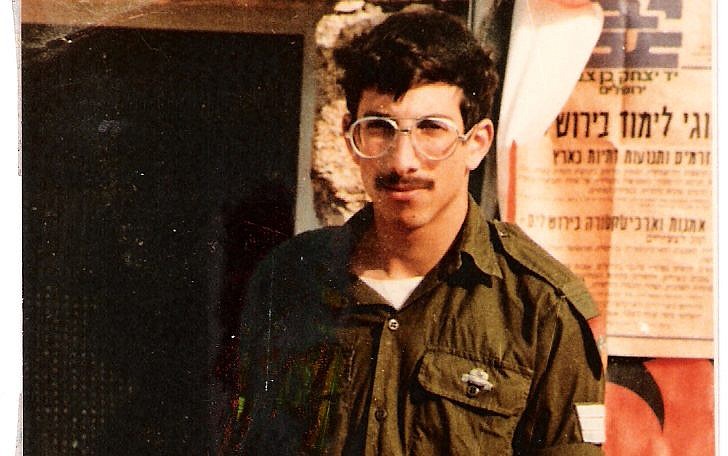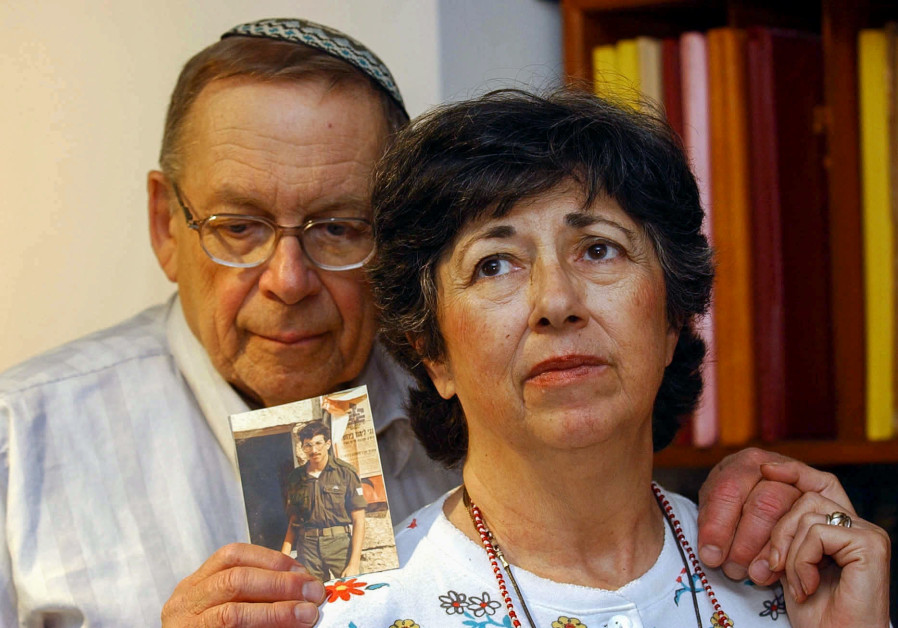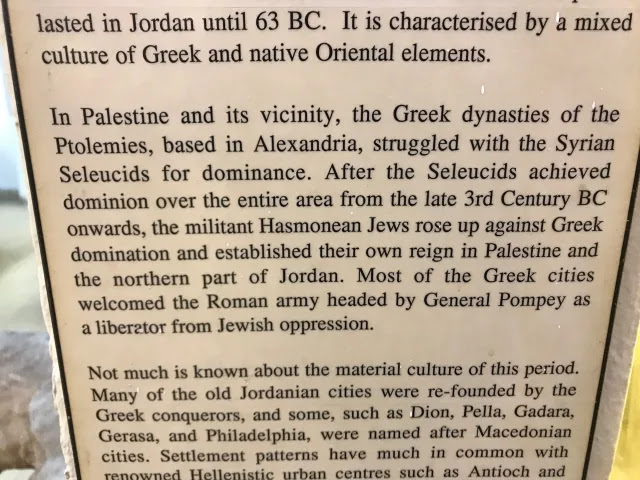Israel’s Unfailing Commitment to Bring Its Soldiers, and Their Remains, Home to Their Families
Yesterday, the news broke that the remains of the IDF soldier Zachary Baumel—declared missing-in-action in 1982 during the First Lebanon War—have been returned to Israel. While Baumel has long been presumed dead, his name is well known to Israelis, who do not easily forget those who have been captured or gone missing while defending their country. The IDF even employs a special unit, known as EITAN, to find them, and it investigates cases going all the way back to the Jewish state’s first war. Matti Friedman, writing before the return of Baumel’s corpse, describes the unit’s operations:
In the offices [of] EITAN, there are 95 files still open from the 1948 war. A team of about 50 active researchers is tasked with closing them—a hybrid outfit of detective-historians, not regular soldiers but rather reservists called up for a few weeks a year. In their real lives, some of the researchers are academic historians. Others are policemen or computer programmers. The necessary personality type ranges from patient to pedantic. They might spend years on one case. The rule is that they can never give up. . . .
In the Jewish tradition, families must have a grave where they can mourn, explained [Nir Israeli, the unit’s commander]. And they need closure. “This is a commitment we make to our soldiers: we sent this person, and we have to bring him home.” Sometimes [Israeli] tries to demonstrate this value by bringing young soldiers along in his search parties. In a recent sweep to find the remains of four Givati Brigade soldiers who went missing in a skirmish with the Egyptians in 1948, for example, he used soldiers from the modern-day incarnation of the same military unit. (They found traces of the battle, such as old bullets, but no bodies.) . . .
Each file is periodically opened and reviewed for clues—something that might be apparent to a fresh pair of eyes, a hint that that might have evaded researchers in the past. . . . EITAN researchers manage to close a few files a year. In May, for example, after years of searching, they found the body of a thirty-four-year-old fighter, Libka Shefer, who was killed in an Egyptian assault against a kibbutz in southern Israel in 1948. Seventy years after her death, she was finally buried under her own name.
Fallen MIA IDF Commander Returns Home
Sergeant 1st Class Zachary Baumel’s last words to his parents were “Don’t worry, everything is okay, but it looks like I won’t be home for a while.” After 37 years, Sergeant 1st Class Zachary Baumel has finally returned home.Sgt. 1st Class Zachary Baumel has returned home
In 1982, during the First Lebanon War, Sergeant First Class Zachary Baumel, an IDF tank commander, went missing in action (MIA). Today, we finally brought this fallen soldier home to Israel for a proper burial.
For decades the Israeli intelligence community and the MIA Allocation Team have undertaken various intelligence, research, and operational efforts in order to locate and recover the remains of those who are MIA.
The IDF’s Military Intelligence Directorate initiated Operation Bittersweet Song, and following a month’s long process which was just completed in the past few days, the body of Sergeant First Class Zachary Baumel was located, identified, and recovered.
Battle of Sultan Yacoub
On the night of June 10, 1982, the IDF’s 362nd Armored Battalion entered the Beqaa Valley in the eastern region of the Sultan Yaaqoub sector in Lebanon. The Israeli battalion found itself facing the Syrian 1st Armored Division alongside forces from Palestinian terrorist organizations.
Inside the 37-year search for IDF soldier Zachary Baumel
Over the course of nearly 37 years, Israeli intelligence officers searched for the remains of fallen tank commander Zachary Baumel, who went missing in the 1982 Battle of Sultan Yacoub against the Syrian army in Lebanon’s Bekaa Valley.Searching for Israel's Missing Soldiers for 37 Years
This week, nearly four decades later, Sgt. First-Class Baumel’s body was returned to Israel and will be brought to a Jewish burial at Jerusalem’s Mount Herzl military cemetery on Thursday evening.
In Israel, the bittersweet news was greeted with a sense of awe and pride at the lengths the military was prepared to go for its fallen soldiers. Baumel’s father, Yona, died in 2009 without learning of Zachary’s fate, but the rest of his family, including his 90-year-old mother Miriam, now have some form of closure.
“We want all IDF soldiers to know that when they enlist, the State of Israel will do everything it takes, if they — heaven forbid — fall captive or go missing, in order to bring them home,” Lt. Col. Nir Israeli, the head of the Israel Defense Forces’ missing soldiers unit, told The Times of Israel Wednesday.
In total, there are 176 IDF soldiers who are designated as killed-in-action but whose exact burial places are not known, the majority of them — 95 — from the 1948 War of Independence, Israeli said.
In the world of intelligence, the saying goes, reality often exceeds the imagination, and yet – the operation to return Zachary Baumel’s remains to Israel, in a mission that spanned the globe, can easily be considered one of the most impressive in the country’s history.Russia, Syria and the Return of a Fallen IDF Soldier
Israeli officials have long known where Baumel was buried. The matter of our missing soldiers was also raised on many occasions with foreign governments, primarily in the midst of peace talks with Syria and the Palestinians. After the Oslo Accords were signed, Yasser Arafat even transferred one of Baumel’s dog tags to Israel, but nothing more ever materialized. Syria has always said it would agree to resolve the mystery, but only parallel to receiving the Golan Heights in return, as part of a peace agreement between the countries.
A little over a year ago, the issue was again raised by then-Defense Minister Avigdor Lieberman. If the reports are true that Russia was involved in the operation, we can assume that Lieberman spoke with his counterpart in the Russian defense ministry, Sergei Shoigu. It appears that this time the response was different, and the Russians agreed to lend a hand. Either way, Israeli officials began working vigorously. In a series of intelligence operations, the Military Intelligence Directorate and Mossad pinpointed Baumel’s exact resting place. All the information was gathered into a classified file under the codename “Bittersweet Song.”
37 years after Israel's first war with Lebanon in 1982, the Israeli Defense Forces said on Wednesday that the body of fallen soldier Zachary Baumel had been transferred to Israel. Baumel's funeral will be held at Jerusalem's Mount Herzl military cemetery on Thursday night at 7:00pm local time. The IDF spokesperson said Baumel's body was returned aboard an El Al flight through an anonymous third country intermediary in operation undertaken by Israel's intelligence agencies. Five more Israeli soldiers went missing in Lebanon on June 11, 1982 during the Sultan Yaaqub battle including Zvi Feldman and Yehuda Katz, whose whereabouts remain unknown. 20 Israeli soldiers were killed during the exchange of attacks with Syrian forces at the start of the First Lebanon War. Baumel's burial is set to take place this week.








































